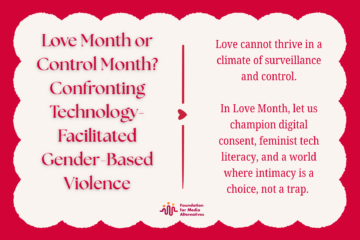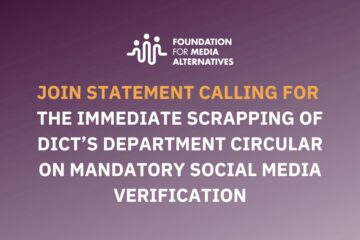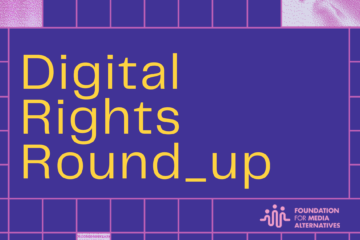3 students win OOTB’s essay writing contest on digital rights, security
This is a press release from Out of The Box Media Literacy Initiative.
In celebration of Safer Internet Day, non-government organization Out of The Box Media Literacy (OOTB) named 3 high school students as winners for its “Take Ctrl ⇧ Shift Habits” essay writing contest on Tuesday, February 7.
The contest aims to provide a space for young Filipinos to make their voices heard on matters relating to their security, wellbeing, and human rights in the digital world. It is also part of OOTB’s campaign on digital rights and Internet security.
Grade 11 student Mary Treb Hibaya of Saint Mary’s Academy – Pasay City won the first place. Joshua Tristeza (Grade 12) of Mandurriao National High School in Iloilo City took the second spot while Anika Mei Cunanan (Grade 11) of the University of Santo Tomas won third place.
The winning essays of the “Take Ctrl ⇧ Shift Habits” contest showcased Filipino youth’s perspectives on combating disinformation, the complexities of the right to free speech, and social media platforms’ regulatory mechanisms. Each essay is complemented with artworks by Cartoonist ZACH and Isang Tasang Kape.
You may read excerpts from the winning essays below:
First place: “Play the game: Fool’s move”
“To cure the sickness that corruption is spreading, internet platforms must first get rid of their biased system. Political news and factual information must always appear on one’s feed, not fixed to a user’s specified algorithm. Other harmful content must also be rid of without granting reprieve, especially when multiple users have flagged the said content as negative. Only through the change of algorithm and the proper handling of user data will we find proper balance and ensure democracy.”
Read Mary Treb Hibaya’s full essay here.
Second place: “A dose of social media problem: What should platforms do to protect its users?”
“Despite its usefulness, social media is prone to harmful online content. This drawback is always associated with our freedom of expression, among our various individual human rights. Although individual self-regulation is a factor in seeing less harmful content on social media, the larger burden is still on the platform companies. Yet, how exactly should they handle such content without trampling on the rights of media users?”
Read Joshua Tristeza’s full essay here.
Third place: “A dose of social media problem: What should platforms do to protect its users?”
“More regulatory mechanisms continue to be put in place, but due to cost reduction attempts, mechanisms such as content moderation and filtering are automated. One prominent example is YouTube, a video-sharing site known for numerous controversies regarding its moderation of children’s content. As the platform grows, it continues to cater to a younger audience, which in turn slowly silences creators who make content for more adult viewers. While cost reduction is a business trend done to increase profits, companies and governing bodies should have the rights of all its users protected in their best interests.”
Read Anika Mei Cunanan’s full essay here.
Over 80 students from 40 high schools nationwide participated in the contest and answered the question, “How should Internet platforms deal with harmful online content in a way that ensures the proper balance with the right to freedom of expression and other human rights?”
The essay submissions were judged by digital rights and media literacy experts from the program’s partner organizations, Foundation for Media Alternatives, Yabong Philippines, and EngageMedia.
The contest was done in partnership with EngageMedia, YABONG PH, Foundation for Media Alternatives, MovePH and FactsFirstPH.



0 Comments